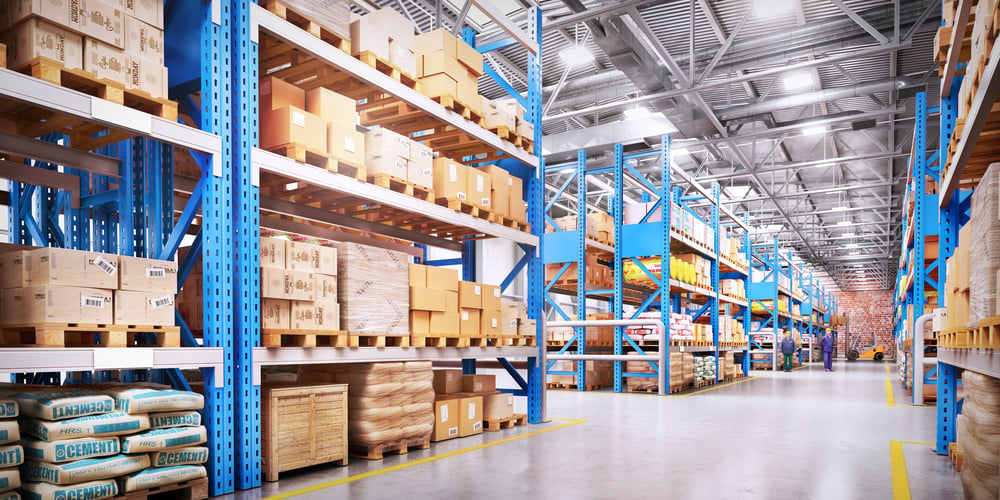REDWOOD LOGIN
Redwood PortalLTL
SCS
SCS Support
Rockfarm

Warehousing can be one of the most beneficial things that you do for your company since you installed that shiny, new TMS!
A lot of companies are still struggling with how best to manage all of that inventory. About half of them are learning that freeing up some real estate space is not as easy as it sounds. The most obvious solution is a solid warehousing system.
It can be more cost-effective than most might believe, and on top of that, it can improve your overall shipping process.
So, if you have been considering the possible benefits of warehousing, you are in luck as today we are look into the top three benefits of warehousing!
For companies who mass-produce their own goods, having ample warehousing space to store all of their raw materials is not only important, it is vital.
Production on a large scale requires an equally large space for completed goods as well. By making use of large warehouse space, manufacturers can produce goods ahead of time. This can prove to be extremely beneficial for planning the production of seasonal goods.
Having the ability to move these surplus goods into a warehouse, and get it off of the distribution center floors. This is crucial for any company that plans to scale its business at some point in the future. And for businesses that are not based around on-demand production, it is even more vital.
Every foot of space that a company owns is a valuable piece of real estate. And there is no more valuable real estate in the logistics industry than that of warehouse space.
Warehousing your goods is a great way to ensure that they stay safe and well out of harm’s way.
When companies are shipping goods from one warehouse to the next, the chances of damaged goods go up drastically. The process usually involves the shipment of goods from the company to a distribution center to await delivery. That is a lot of moving around, not to mention that goods may sit in a distribution center for days before being shipped. All this does is increase the odds of damaged or lost goods.
By having enough space to hold goods until they are ready to be shipped, companies can minimize the chance that their customers end up with damaged goods.
Public warehouses, sometimes called duty-paid warehouses, are storage spaces that are rented out to the general public. These establishments could be owned by an individual, but more often than not, they are owned by large corporations. Either way, all public warehouses must be fully licensed in accordance with, and adhere to all federal rules and regulations under the United States Warehouse Act (USWA) in order to operate.
This type of warehousing plays a vital role in the interests of agricultural products and their promotion. Due to this, the U.S. government widely encourages the use of public warehousing in the co-op arena.
Most small to medium-sized businesses cannot yet afford to own and properly manage their own warehouses. For this reason, public warehousing is a very useful tool for the small business community.
Other times, the business just doesn’t see a need to maintain a private warehouse. Often times, they simply opt to take full advantage of public warehousing instead.
A private warehouse is one that is owned by large manufacturers or vendors who need to store their goods securely. By securely, what we really mean is in; in their possession.
Private warehouses are an excellent option for businesses who can afford to keep them properly maintained by trained employees. Needless to say, this is not the most inexpensive option on the list, but it does come with its own advantages.
For instance, until goods are ready for shipping out to the customer, they simply stay in the warehouse. This is especially true of high-value items that a company may not want to entrust to a third-party.
This minimizes the risk of damage, theft, loss, and many other issues that could arise at any given moment.
Bonded warehouses are storage facilities which have been licensed directly by the U.S. government. They are used solely for the storage of any imported goods until the customs duty has been paid. These warehouses are generally under the direct control of customs authorities.
When a shipment comes across the border, a bonded warehouse holds onto it until the importer can pay the customs duty. This fee can be paid off in installments, with the goods being released in proportion to the amount being paid toward the duty.
This is probably one of the most complex warehousing processes you will ever run into, which is why it is always a wise idea to work with an experienced 3PL who can guide you through it as easily as possible while potentially saving you some money in the process.
Getting started with warehousing is simple, cost-effective, and most importantly, it adds value and resiliency to your supply chain. Additionally, it adds a new level of scalability to your shipping processes that can benefit you greatly in the long run.
If you are ready to start warehousing, reach out to us here at Redwood Logistics and let us help you take your first steps!